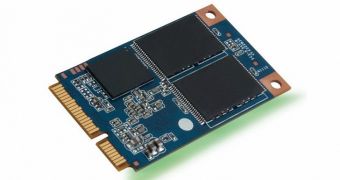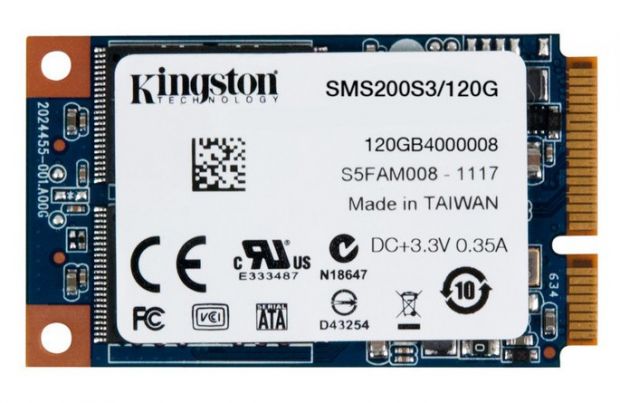Solid-state drives seem to be coming out all the time these days, and it's exactly that sort of storage that Kingston (again) experimented with recently, creating the mS200 series of caseless drives.
Many solid-state drives use a form factor not unlike those of hard disk drives, with an aluminum case of some sort, making them look like small, thin slabs or cards.
When it comes to mSATA ones, however, the PCB is bare at least on one side, as they need to be much thinner, lighter and overall smaller. They are made for laptops after all.
The new additions to the Kingston SSDNow mS200 mSATA SSD line are bare on both sides. They have the PCB-only design down pat actually.
Depending on how many NAND Flash memory chips and what types of chips they employ, they can reach 480 GB capacity.
There are five capacities to be specific: 30 GB, 60 GB, 120 GB, 240 GB and, of course, 480 GB. It's actually pretty surprising that there even is a 30 GB one. These days, even 60 GB is considered just barely sufficient as a boot/cache drive, so 30 GB is surprising.
Still, we suppose that the option is good for those who want a dual-drive configuration of decent, if not great, performance but don't have a fortune to squander.
LSI SandForce controllers are used by the Kingston mS200 SSDs. The 30 GB, 60 GB and 120 GB ones rely on the SandForce 2241, while the other two (240 GB and 480 GB) use the SandForce 2281.
Performance varies from drive to drive, and it grows with the capacity (something that HDDs don't share with SSDs). Thus, the mS200 can reach 550 MB/s when reading files, and can write data at up to 520 MB/s.Beyond that, the newcomers benefit from such things as TRIM (a feature in Windows 7 and later operating systems that maintains maximum performance over time) and S.M.A.R.T. (self-monitoring and reporting technology).
Needless to say, SATA 6.0 Gbps (SATA III) interface and previous-generation revisions are supported, without which the top performance cited above would not be possible. Finally, AES 128-bit hardware encryption, including password protection at drive level, is included.
Kingston, sadly, didn't say what prices we should expect in the press release that exposed the SSDNow mS200 SSDs to the world. It did include the specific performance numbers for the different drives though. Sequential read write is like this:
30 GB - 550 MB/s / 510 MB/s 60GB - 550 MB/s / 520 MB/s 120 GB - 550 MB/s / 520 MB/s 240 GB - 540 MB/s / 530 MB/s 480GB - 530 MB/s / 340 MB/s

 14 DAY TRIAL //
14 DAY TRIAL // 

